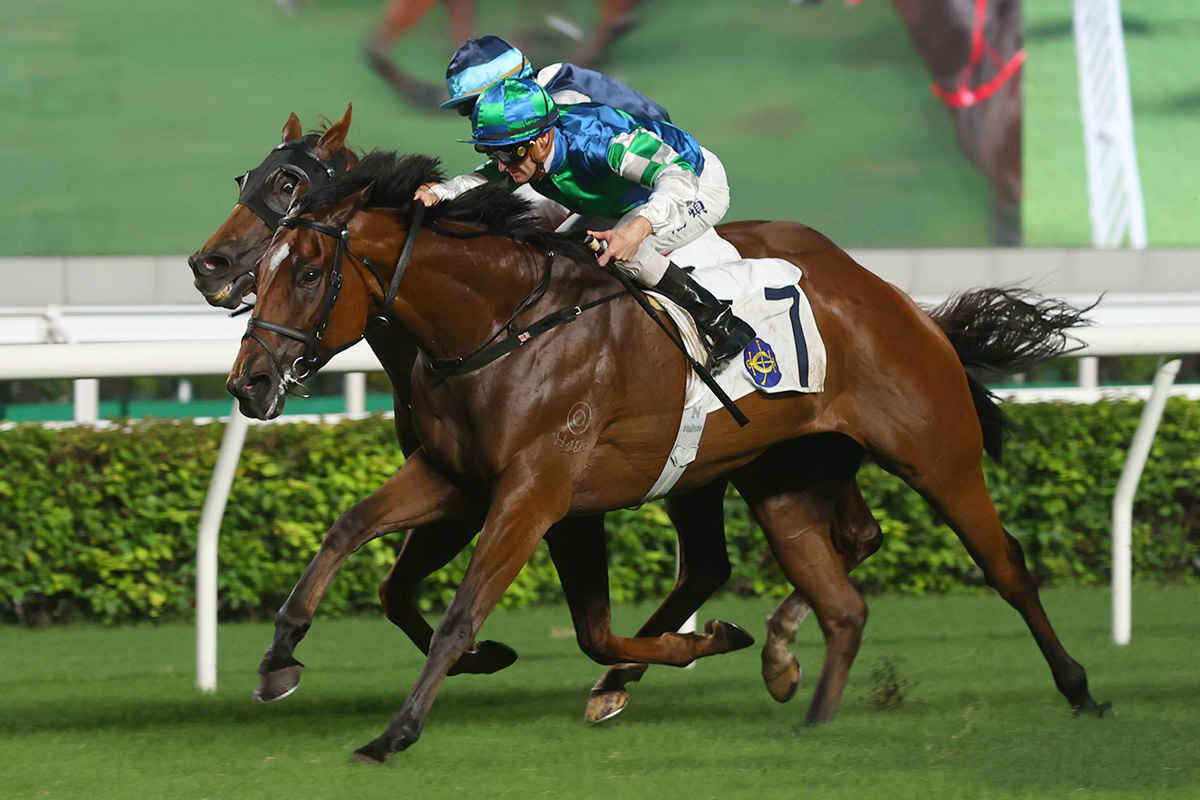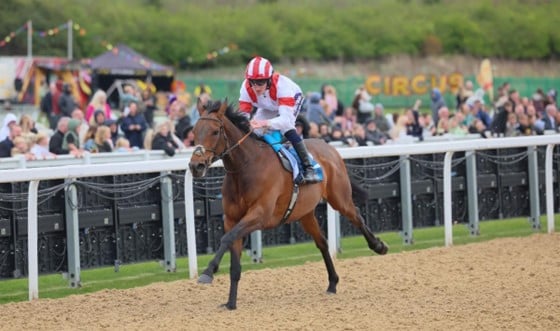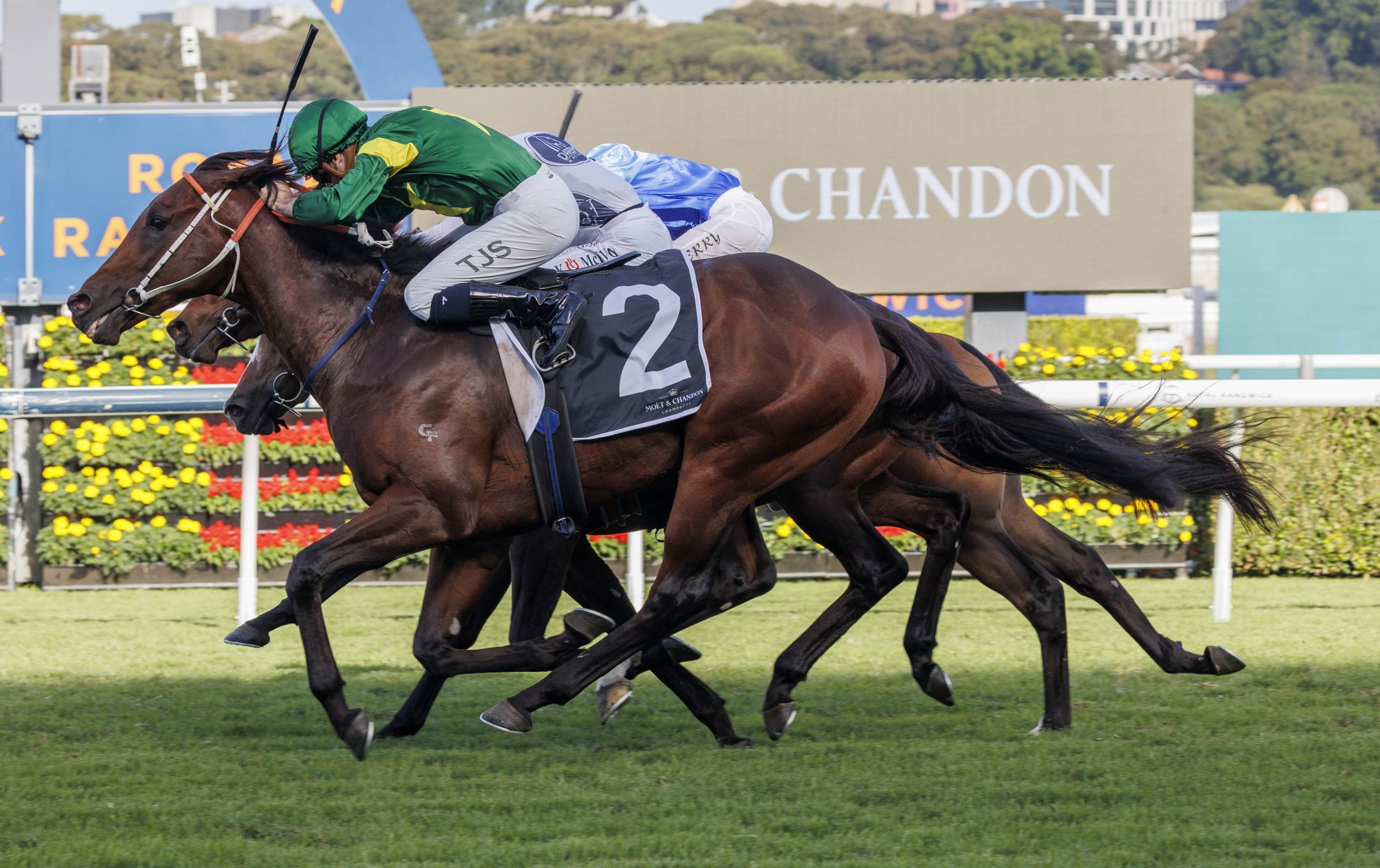After the hardships the province faced last year, including the unrest in July and the Covid-19 variants that have decimated the tourism industry, KwaZulu-Natal simply cannot afford the heavy financial toll of the racing industry’s collapse.
This warning was issued on Wednesday in a communication to Gold Circle Members by Chairperson Belinda Scott in reference to a recently published bill which she says ‘is of great concern to Gold Circle and to the horseracing industry at large’.
The Gaming and Betting Tax Amendment Bill was introduced in the KwaZulu Natal provincial legislature on 10 December 2021, and was subsequently published in the Provincial Gazette on 7 January 2022.

Student S’busiswe Dube presented a matching pair of outfits at the first round of judging of the Vodacom Durban July Young Designer Award
Since the Bill includes provisions with potentially ruinous consequences for the industry, Mrs Scot said she thought it important to ensure that Gold Circle members are aware of it, and the magnitude of the threat it poses.
Since 1976, the racing operators have received from or via bookmakers, a contribution to the costs incurred by the racing operators in staging racing and providing racing product for fixed odds betting.
This has been a part of our law for decades, and most recently finds itself encapsulated in the provisions of the KwaZulu-Natal Gaming and Betting Tax Act.
In short, winning punters of fixed odds bets pay a tax of 6% of the winnings to the provincial fiscus and, in turn, half of that (3%) is paid by the fiscus to Gold Circle as a contribution to the cost of staging the Sport in KwaZulu-Natal.
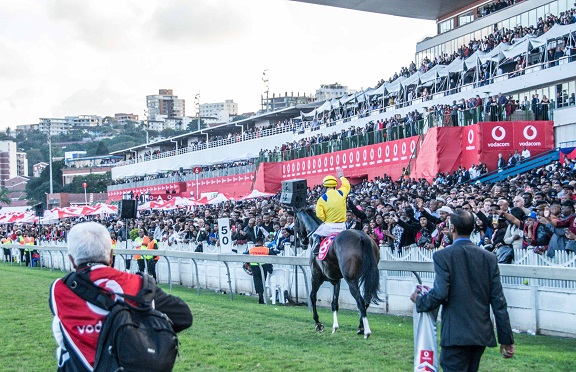
The July is a massive economic boost for the province (Pic – Chase Liebenberg)
The new Gaming and Betting Tax Amendment Bill, which was initially published on 29 November 2021, seeks to remove Gold Circle’s right to receive this 3%.
The new Bill provides that 1.4% (just under half of the contribution) will be diverted to the ‘Transformation Fund’, which will be under the control of the KZN Gaming & Betting Board. In relation to the remaining 1.6%, Gold Circle will have the right to apply for all of, or some of that amount, for the purpose of ‘development’ and ‘transformation’, provided it complies with a series of conditions which the KwaZulu-Natal Gaming and Betting Board may wish to impose from time to time.
Mrs Scott suggests that this proposal would at least (nearly) halve the contribution paid to Gold Circle (although it could just as well completely delete the contribution), and thus poses an existential threat to the industry as this funding subsidises the significant costs that racecourse operators incur to keep the industry alive.
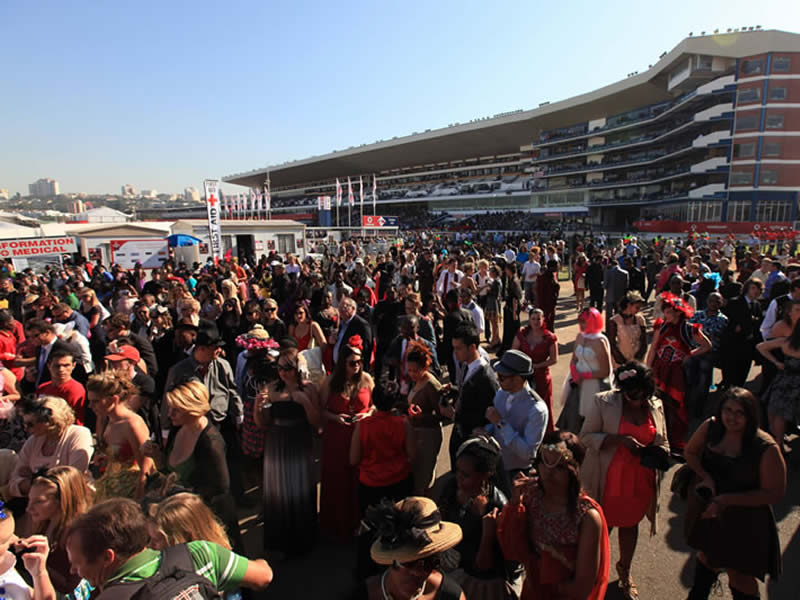
If enacted, the Bill would also have far-reaching consequences for employment in the sector and the province. The economic participants whose livelihoods depend on the industry include workers at the racecourse, training facilities, racehorse breeders and trainers, the Coastal Horse Care Unit, the South African Jockey Academy, horse feed manufacturers, veterinarians, farriers, grooms, jockeys, horse transporters, totalisator staff and downstream leisure horse grooms amongst others.
Of particular cultural and economic concern is the fate of the Durban July should the proposal be enacted. The Durban July is the premier racing event in the country, the largest horseracing event in Africa, and an institution in KwaZulu Natal.
It brings visitors to the province to the benefit of the accommodation, transport, entertainment, and fashion industries. The Economic Impact Assessment of the 2019 event showed a contribution of R288 million to the Municipality’s Gross Domestic Product.
In a shocking observation, the current Bill could make the continued hosting of the event by Gold Circle financially unfeasible.
After the hardships the province faced last year, including the unrest in July and the Covid-19 variants that have decimated the tourism industry, the province simply cannot afford the heavy financial toll of the industry’s collapse.
It is all the more concerning that the Bill was already published once before irregularly and with insufficient time for public comment. So grave was the initial procedural deficiency that the Bill was withdrawn, pursuant to representations made by Gold Circle to the Secretary of the KwaZulu-Natal Legislature. This was a hopeful sign for the industry until the Bill was republished on 7 January 2022.
The new deadline for public comment is 6 February 2022. Once this window closes, the Bill will be debated in the legislature and voted on.
While the debate process in the portfolio committee will present more opportunities for input on the Bill, including the possibility of public hearings , Mrs Scott says ‘we cannot be complacent’.
Gold Circle has already communicated its concerns about the Bill to the Secretary of the KwaZulu- Natal legislature as well as the KwaZulu-Natal provincial treasury, and is currently preparing its official legal submission on the Bill. The company will remain engaged throughout the legislative process to try and help ensure that the Bill’s more calamitous provisions are not enacted.
“We strongly encourage our members to make their voices heard on this matter as well,” says Mrs Scott.
Gold Circle respects any good intentions of a government, but this Bill in its current form can only contribute to the province’s already substantial unemployment rate, recently worsened by the July unrest.
For the sake of the thousands of people employed by the industry – and the horserace lovers who have supported the Durban July over its 125-year history and the Industry at large – this Bill simply cannot be allowed to pass in its current form.
Please read more – click on the cover of the SPRINT below:







